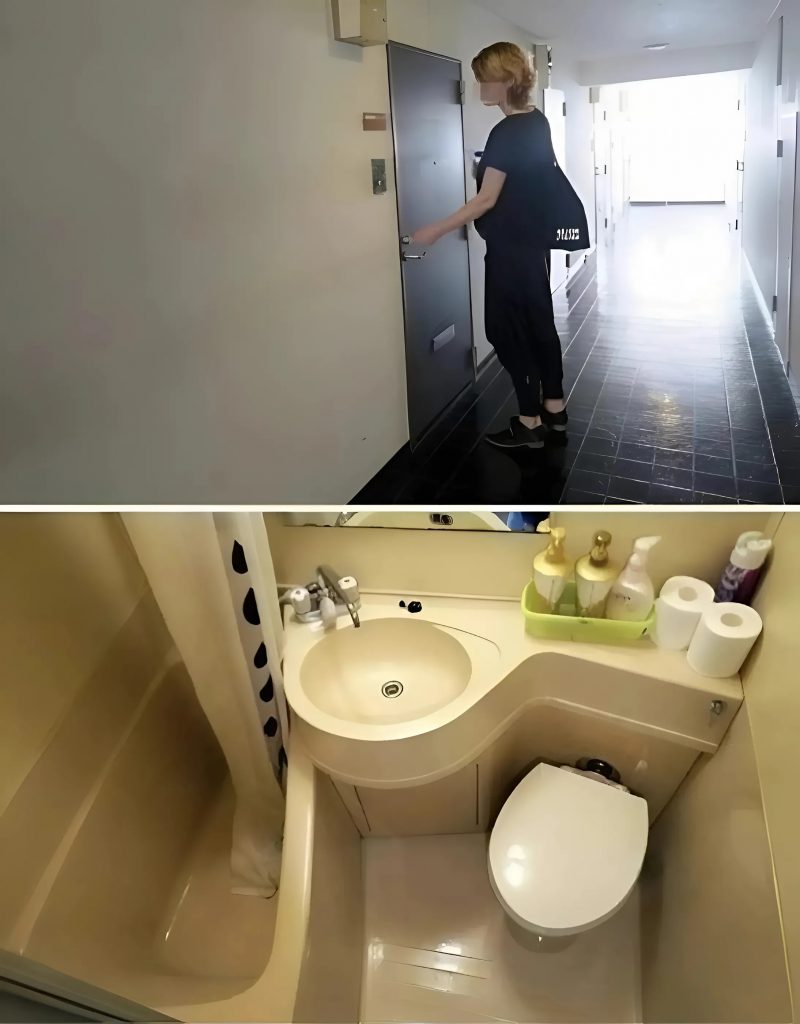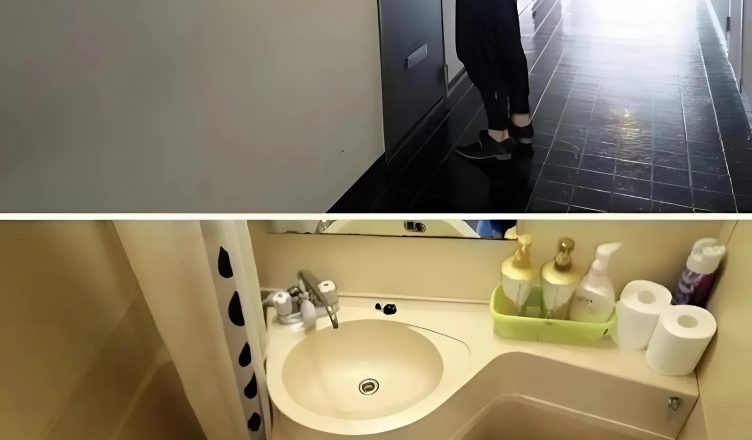From above, Tokyo shimmers like a dream—an endless mosaic of neon, steel, and ambition. Skyscrapers rise into the sky like silver needles. Bullet trains glide with surgical precision. Cafés buzz with Wi-Fi and quiet elegance. It is a metropolis defined by its power, its polish, and its promise.
But beneath the glass towers and beneath the well-dressed crowds, there is another Tokyo. One that does not sparkle. One you will not find on postcards. One that breathes between walls no wider than a mattress.
They call them geki-sema, meaning “extremely narrow.” Rooms the size of a parking space. Capsules. Cubes. Boxes. In these units, life happens upright, hunched, in stillness. And those who live here? They are not idle. They work. They serve coffee. They answer phones. They deliver packages. They clean offices you may have walked through. But they return to homes that barely fit their bodies, let alone their dreams.
The Man in the 1.4-Meter Room
Kenta is 31. He wears clean white shirts and carries a briefcase, though he works only part-time. He graduated from a university no one outside Japan would know, but he had hope—until he didn’t. Now, he rents a “room” that is 1.4 meters wide and 2.5 meters long. There is no window. No closet. No privacy. His bed is a mat on the floor. A shelf above his head stores everything he owns: a phone charger, a rice cooker, a worn suit, and two notebooks filled with poetry he never shows anyone.
“I’m not homeless,” he says. “But I’m not really home either.”
The rent? Equivalent to about $250 per month. In Tokyo, that’s a miracle. But what does that miracle cost?
He eats convenience store meals. He showers once every two days in a shared bathroom. He reads by phone light. And he lives surrounded by paper-thin walls, where every cough and cry bleeds into his space.

Who Are the Forgotten?
They are the underemployed. The aging. The divorced. The dreamers who came to Tokyo for opportunity and found a wall instead.
Some are migrants. Some are victims of economic collapse. Others are simply casualties of a system that prizes productivity over humanity. Tokyo has one of the world’s highest costs of living, and even full-time workers struggle to keep up with rising rents and stagnant wages.
In these rooms, lives fold in on themselves. There is no space to stretch, to host, to dream out loud. Solitude becomes claustrophobia. Silence becomes a weight. Yet, remarkably, people endure.
A System That Shrinks the Soul
Urban housing in Tokyo has always been tight. But what began as practical efficiency has, over decades, curdled into compression. Developers see value in micro-units. Landlords convert apartments into rabbit warrens of rentable spaces. A 3-bedroom flat becomes 6 miniature capsules. There are no kitchens, no insulation, no escape.
And it’s legal.
Tenants sign waivers acknowledging the conditions. There is no regulation to protect them. For many, these dwellings are preferable to the streets—but only just.
The city keeps building higher. But for the people on the bottom, space keeps shrinking.
Between Hope and Humiliation
In the corner of his room, Kenta keeps a framed photo of his younger sister. She lives in Osaka and has never seen his apartment. “I tell her I live near Shinjuku,” he laughs. “I don’t tell her where exactly.”
He doesn’t want her to see the chipped walls or the stains on the shared bathroom tile. He doesn’t want her to hear the whispers from the man in the room next door who cries at night, every night, without fail.
But above all, he doesn’t want her to see what he’s become: not a failure, but a man folded too many times to resemble the boy he once was.
Resistance in Quiet Acts
And yet, in this cramped world, there is resistance. In the daily ritual of ironing a shirt even if no one will see it. In watering a tiny plant on a ledge that barely catches sunlight. In journaling poetry in the flicker of a phone screen. In these gestures, there is defiance.
“I still write,” Kenta says. “Because if I don’t, I’ll forget I exist.”
He reads Murakami. He sketches maps of Tokyo neighborhoods he’s never visited. He dreams, not of luxury, but of a room with a window. A door that locks. A space where his thoughts won’t echo back at him through the walls.
The Invisible Millions
Japan is proud of its efficiency. But in pursuit of space-saving, it has created lives that must be shrunk to fit the city’s mold. There are millions like Kenta—people who fall just outside the statistics, who work hard but don’t earn enough, who keep their heads down, who disappear in plain sight.
Tokyo’s elegance hides a fragile underbelly: thousands of human beings living between walls that were never meant to house a life.
They do not ask for pity. Only space. Not vast, not grand. Just enough to stretch a leg, to breathe, to be.
